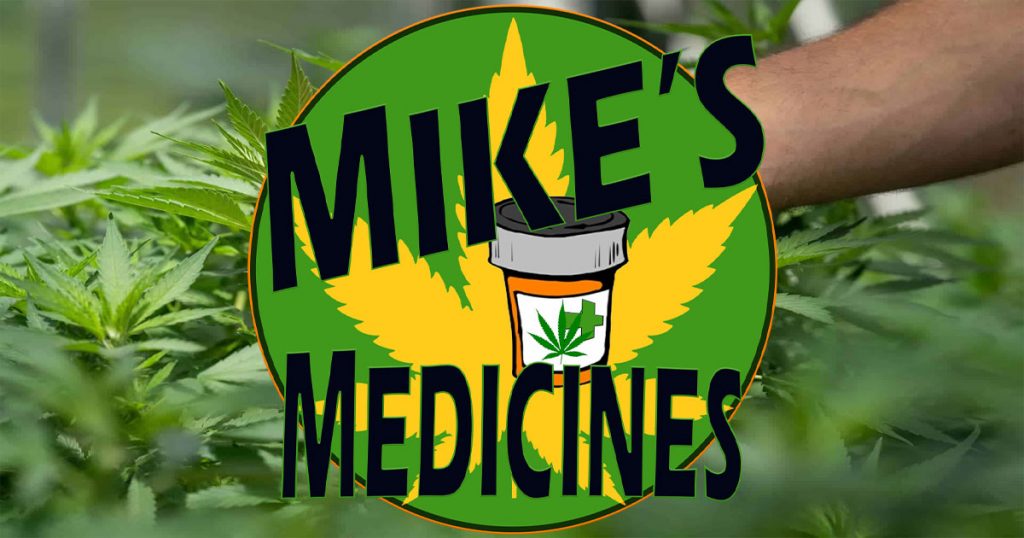New Research Shows Cannabis Is The Answer, Other Research Discloses The Truth About Pharmaceuticals:
In a June New York Times article entitles “Risk for Dementia May Increase With Long-Term Use of Certain Medicines”, some of the same truths reported here in my blog a few years ago came to light. Pharmaceuticals are much more than oxidants our bodies try to get rid of in various ways, and even more than carcinogens as I reported nearly 2 years ago in a blog entitled “Prescription Medications: Are They Carcinogens” – what the New York Times confirmed was the research that actually proves pills cause us to lose our memories and so much more. With the number of medications that are prescribed to people like myself with Severe Epilepsy and more, it’s now shedding quite a bit of light on why we get forgetful or get multiple cancers as I did. Thankfully Cannabis Oils have stepped in and worked where Pharmaceuticals have not for both Genevieve and me, alleviating us from a future where we lack cognition vs. gain it. There’s quite a bit of talk about how Cannabis causes cognitive impairment in Children – and that ‘information’ as I’ll call it, has been carried over into the adult population where it is simply not quantified. There are numerous studies that basically state that: 1.) If you’re lazy and sit around smoking all day you may end up with cognitive deficits 2.) If you commute to work and don’t smoke anything, inhaling exhaust fumes can do even more damage than cannabis 3.) Adults, especially the middle-aged, benefit greatly from the use of cannabinoid medicine in the increase of cognitive function. 4.) Cannabis use causes kids to have cognitive delays. (This is nonsensical as so many kids like Genevieve prove it to be a false claim)
My biggest issue with the studies about kids is that they’re promoted by the same entities that protect big pharma and are based on teens that are smoking. Our kids are not smoking weed! Genevieve ingests THCa, THC, and CBN primarily. Our family as well uses CBD. We also gain a lot of it from whole-plant extractions so terpenes are in play. We have a nature that is not carcinogenic and does not cause cognitive delay. Anyone that’s followed Genevieve’s story closely or even from afar can poke holes in research that’s anti-cannabis and states it causes a cognitive delay in teens. She’s nearly 16 and has gained approx 10 yrs of cognitive advancements in the last 3 yrs of Cannabis use – and it’s been quite a bit of THC. There goes those scientific anti-cannabis theories all paid for by government entities… right out our window as all they are is debatable statements made to protect pills that kill, that cause cancer, and now we know to destruct our brains.

There are just too many of us in the know to allow these ongoing ‘debates’ to continue. “Cannabis is a drug” “No, it’s a plant” “No, it’s both” “It will destruct teen brains” “Use CBD with no THC instead, it works for everything” “No it doesn’t we need THC” “What about interactions” “There are none” “Yes there is” – Wow, this is exactly what the government wants, for us to argue among each other and debate while they get away with what the NY Times reported. We know there’s therapeutic value in all cannabinoids and we also have to be realistic in that they won’t work for everyone – or will they? With more and more research piling up against pharmaceutical drugs and what they can do to our bodies and minds, we now are completely aware that seizure medications were causing a cognitive delay in Genevieve. This means all my friends in our huge Purple Family of Epilepsy are using pharmaceuticals that will progress what’s already happening with seizures. This is simply insanity and it’s the reason why I continually talk about cannabis, its extracts, and the benefits. With the number of pharmaceutical drugs that have initially been found to legally do this to the brains of citizens in a free country (this reminds me of Genocide), let’s take a look at that entire NY Times story – it’s more than worthy of reprinting:
“Risk for Dementia May Increase With Long-Term Use of Certain Medicines” By: Pam Belluck – NY Times
Here’s what research suggests about a class of drugs called anticholinergics, which treat a wide range of ailments, from depression to bladder issues.

Can certain medications increase your risk of dementia?
A new study suggests that people who take a class of common medicines called anticholinergic drugs for several years may be more likely to develop dementia as they age.
This is not a new hypothesis about these drugs, which are used to treat a wide range of conditions from depression to epilepsy to incontinence. But the study, published in the journal JAMA Internal Medicine, is large, and it analyzed the use of the medications in more detail and over a longer period of time than many previous studies. Here’s what is known about the potential link between anticholinergic medicines and dementia.
Which drugs are we talking about?
Anticholinergic drugs include the antipsychotic clozapine; the bladder drug darifenacin (marketed as Enablex); the anti-nausea drug scopolamine; the bronchodilator ipratropium; the muscle relaxant tizanidine; antihistamines such as diphenhydramine (brand names include Benadryl), and antidepressants such as paroxetine (brand names include Paxil).
These medications work by blocking a chemical called acetylcholine, which acts as a neurotransmitter and is involved in many nervous system functions including muscle movements, heart rate, the widening of blood vessels, respiratory functions, and muscle contractions in the stomach during digestion.
Older adults are more likely to be prescribed many of these medications, simply because they tend to have more health issues. Some experts say that because people produce less acetylcholine as they age, drugs that inhibit that neurochemical can have a stronger effect on older people.
What does previous research show?
Other studies have also suggested that long-term use of some anticholinergic medications might increase the risk that older people will develop dementia.
For example, a 2015 study by researchers at the University of Washington found that people age 65 and older who took these medications for three years or more had a 54 percent greater risk of developing dementia than people who took the medications for three months or less.
A 2014 review found more than 30 studies that suggested confusion and other symptoms of cognitive decline increase with the amount of anticholinergic medication someone takes.
Dr. Malaz Boustani, director of the Regenstrief Center for Health Innovation and Implementation Science at Indiana University, has created a tool called the anticholinergic cognitive burden scale, which ranks drugs by their suspected effects on cognition. Experts suggest avoiding extended use of drugs with a rating of 3 on the scale — or combinations of drugs that together rate 3 or higher.
What did the new study involve?
The research, conducted by Carol Coupland, a professor of medical statistics in primary care at the University of Nottingham in England, and colleagues, evaluated anticholinergic drugs prescribed to nearly 285,000 people age 55 and older. About 59,000 of them had a diagnosis of dementia. The information came from a database of medical records from patients in more than 1,500 general practices in Britain, the authors said.
Researchers looked at the medical records of patients who were diagnosed with dementia and examined the drugs they had been prescribed from 11 years to one year before their diagnosis. They compared their medications during that time frame with those of people who did not have a diagnosis of dementia. They recorded which of 56 anticholinergic medications people were prescribed, and at what dose, and how long. They accounted for factors like body mass index, smoking, alcohol consumption, other medical conditions, and use of other medications.
The study found a 50 percent increased risk of dementia among people who used a strong anticholinergic drug daily for about three years within that 10-year period. The association was stronger for antidepressants, bladder drugs, antipsychotics, and epilepsy medications, the study said. Researchers did not find any increased risk of dementia with antihistamines, bronchodilators, muscle relaxants, or medications for stomach spasms or heart arrhythmias.
The link between anticholinergic drugs was stronger for people diagnosed with dementia before they turned 80 and in people with vascular dementia compared to people with Alzheimer’s disease, the authors reported.
What are the limitations of the research?
An important caveat with this type of study is that it is observational — meaning there is no way to know if the medication use played any direct role in causing dementia. All it shows is that the risk of developing dementia appears to be higher for people who take some of these medications.
It’s also possible, the authors note, some conditions, like depression, maybe early harbingers of cognitive decline. It’s possible, for example, that some people taking antidepressants might actually be being treated for what will turn out to be an early symptom of dementia, so it’s their depression that goes along with an increased risk of dementia — not the medicine they are taking to treat it.
What’s the bottom line?
It’s possible, but not proven, that some anticholinergic drugs increase the risk of dementia. If you need long-term treatment for one of the relevant medical conditions, talk to your doctor about other medication options that are not in the anticholinergic class, such as antidepressants like Celexa and Prozac. In many cases, there may be choices.
*Pam Belluck is a health and science writer. She was one of seven Times staffers awarded the 2015 Pulitzer Prize for International Reporting for coverage of the Ebola epidemic. She is the author of “Island Practice,” about a colorful and contrarian doctor on Nantucket*
Many people want to read newspapers such as the New York Times or read from another source as some guy typing on his blog can’t be right… or can he? We’ve known for years that pharmaceuticals cause some serious issues, and sometimes permanent damage. That includes every last item made by Big Pharma. There’s a lot of talk about Vaccines and Autism – it’s such a debate that needs to end because health issues such as Lupus, MS, CP, too many Cancers to list, and much more would have to go onto that debate table. Add that to the research that proves Big Pharma creates some serious garbage from addictive and life-threatening opioids that were poorly researched giving doctors excuses for allowing patients to become addicted and then cutting them off all the way down to medication actually for Dementia! There’s plenty of talk in the world of research regarding that issue alone. So first off we have pharma drugs that cause it, then we have a pharma drug for it that makes it worse? Why not choose the answer instead…
It’s right here…

There is a solution – and as we talk it up about it the pharmaceutical companies are attempting to recreate the plant in a petri dish. Cannabinoids being made of yeast and more are being talked up like some type of awesome invention. Why would we want more synthetic garbage when we already know what it will do to us. There’s only one type of Cannabis we enjoy… and it’s in the photo below. The real deal – and preferably grown in the sun!

Six months clear off opioids – and life starts again. I look back and wonder if the handfuls of prescribed pills that I was fortunate not to perish from caused the multiple cancers that are now in remission from the use of Cannabis oils. The research is clear regarding what they were doing to my brain, as well, the pharmaceuticals I was taking are listed on the “Items known to Cause Cancer’ watch list for the State of Ca. under Proposition 65 and have been for 2 decades.
We live in an environment of harm for ourselves and our children – Cannabis and its extracts offer us an answer to many of the issues that come from our atmosphere.
-Mike Robinson, Cannabis Patient and Founder, Global Cannabinoid Research Center. But, most of all, Genevieve’s Daddy
Sign up to receive informative and exciting email updates from Mike's Medicines!
You can sign up for our mail list here:
Didn't find what you are looking for?
Find exactly what you want to when you want it.
Browse through our archives by date, category or by entering a topic in the provided search field.
Archives
Categories
More to come as we have time to add them – there’s 100’s of additional publications!

We’ve made it easy for you to read Mike’s Medicine Blog or visit any of the Menu items right from here. It is that simple! Explore Mikes Medicines by clicking on the button below:

Read about how Cannabis Compassion and love created Mike’s beautiful family, the Cannabis Love Story inspires millions daily:
Genevieve’s Dream is all about her love for the Carousel coupled with her Cannabinoid Medicine journey – read more and make contact if you’re interested in collaborating with Mike!
The Global Cannabinoid Research Center is a trusted source for education, R&D, and more – make contact with us to collaborate.






